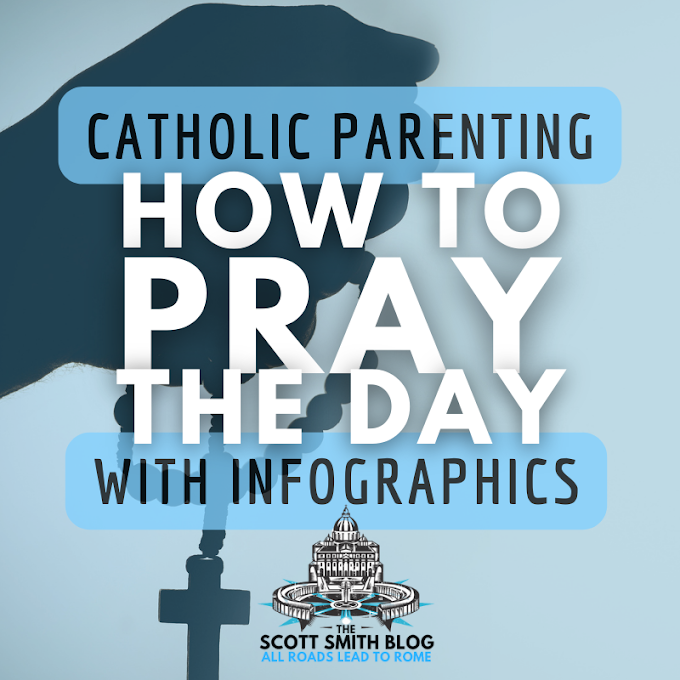"You can't resolve it with the distribution of condoms," Pope Benedict XVI told
reporters aboard an Alitalia plane headed to Yaounde, Cameroon. By "it," the pope is referring to the AIDS epidemic in Africa. "On the
contrary, it increases the problem." Read more here, at The Washington Post, or here, at Fox News.
"Contraceptives Increase the Risk of Catching AIDS" by Clemente Ferrer in News Central Asia:
The Pope advocates that “fidelity and chastity” make up the
only secure path to eradicating AIDS in Africa. He's right! Not only is this the
moral path; it is also the most effective. It's not a coincidence that doing what's moral is also the best way to truly help people--it's ALWAYS this way.
People
just assume that condoms will curtail the spread of AIDS in Africa. Many of these same people ridicule the Pope, saying he's trying to win adherents
through blind faith to Catholic moral teaching. Isn't it funny that the
adherents to the doctrine of condom salvation never question their own
blind faith??? They should. Empirical evidence is not on their side.
There's an example below of this blind faith, in Edward Green's article in The Washington Post. UNAIDS, the Joint United Nations Programme on HIV/AIDS, "quietly disowned" a study conducted by their own researchers that found "no evidence" of condoms working as HIV prevention.
You might be saying: "Why?! Why don't condoms help? It just stands to reason!" Well, perhaps your reason is infected. Think about the fundamental attitude behind contraceptives, and you'll understand the causal relationship.
Condoms
and other contraceptives encourage men and women to divorce love from
responsibility. Condoms are the instrumentality by which people are encouraged to view each other as sexual
objects, not as persons of dignity and sanctity--as children of God. This is the causal
foundation for why contraceptives can only worsen the AIDS epidemic.
That's the Catholic way of explaining it; the Theology of the Body way. The sociological way, as discussed below, involves "Risk Compensation." That is, when people believe condoms make them safer, when used at least some of the time, they actually
engage in riskier sex.
But don't take my word for it ...
Take a look at the following articles and research on this issue:
"Condoms, HIV-AIDS and Africa - The Pope Was Right" by By Edward C. Green (senior research scientist at the Harvard School of Public Health) in The Washington Post, March 29, 2009:
"When Pope Benedict XVI commented this month that condom distribution isn't helping, and may be worsening, the
spread of HIV/AIDS in Africa, he set off a firestorm of protest. Most
non-Catholic commentary has been highly critical of the pope ... Yet, in truth, current empirical evidence supports him."
"In 2003, Norman Hearst and Sanny Chen of the University of California
conducted a condom effectiveness study for the United Nations' AIDS
program and found no evidence of condoms working as a primary
HIV-prevention measure in Africa. UNAIDS quietly disowned the study.
(The authors eventually managed to publish their findings in the
quarterly Studies in Family Planning.) Since then, major articles in
other peer-reviewed journals such as the Lancet, Science and BMJ have
confirmed that condoms have not worked as a primary intervention in the
population-wide epidemics of Africa. In a 2008 article in Science called
"Reassessing HIV Prevention"
10 AIDS experts concluded that 'consistent condom use has not reached a
sufficiently high level, even after many years of widespread and often
aggressive promotion, to produce a measurable slowing of new infections
in the generalized epidemics of Sub-Saharan Africa.'"
Why don't condoms help prevent the spread of AIDS???
"One reason is 'risk compensation.' That is, when people think they're
made safe by using condoms at least some of the time, they actually
engage in riskier sex."
"Another factor is that people seldom use condoms in steady relationships
because doing so would imply a lack of trust. (And if condom use rates
go up, it's possible we are seeing an increase of casual or commercial
sex.) However, it's those ongoing relationships that drive Africa's
worst epidemics. In these, most HIV infections are found in general
populations, not in high-risk groups such as sex workers, gay men or
persons who inject drugs. And in significant proportions of African
populations, people have two or more regular sex partners who overlap in
time. In Botswana, which has one of the world's highest HIV rates, 43
percent of men and 17 percent of women surveyed had two or more regular
sex partners in the previous year."
"These ongoing multiple concurrent sex partnerships resemble a giant,
invisible web of relationships through which HIV/AIDS spreads [emphasis added]. A study
in Malawi showed that even though the average number of sexual partners
was only slightly over two, fully two-thirds of this population was
interconnected through such networks of overlapping, ongoing
relationships."
So what has worked in Africa??
"Strategies that break up these multiple and concurrent sexual
networks -- or, in plain language, faithful mutual monogamy or at least
reduction in numbers of partners, especially concurrent ones. "Closed"
or faithful polygamy can work as well."
"In Uganda's early, largely home-grown AIDS program, which began in 1986,
the focus was on "Sticking to One Partner" or "Zero Grazing" (which
meant remaining faithful within a polygamous marriage) and "Loving
Faithfully." These simple messages worked. More recently, the two
countries with the highest HIV infection rates, Swaziland and Botswana,
have both launched campaigns that discourage people from having multiple
and concurrent sexual partners."
- Read more from Edward C. Green in his book “Broken Promises: How the AIDS Establishment Has Betrayed the Developing World.”
- In it, he insists that Western ideology has led to millions of preventable AIDS deaths in Africa: “[T]he best and the brightest in medicine and public health have led us to a global disaster of epic proportions. In fact, we are now experience the greatest avoidable epidemic in history.”
- The book “Broken Promises” is highly recommended for anyone who is interested in the nexus of politics, ideology, and science. No, everyone should read this book to understand where a “sex supersedes all” mindset can lead.
"Myth Buster Monday: Promoting condoms is the best way to curb the HIV/AIDs epidemic in Africa" from the The United Families International Blog:
The Unite Families International Blog provides this excellent bibliography for more scholarly articles on this topic:
- D. Halperin and H. Epstein, “Concurrent Sexual Partnerships Help Explain Africa’s High HIV Prevalence: Implications for Prevention,” Lancet 363 (2004): 4-6.
- Norman Hearst and Sanny Chen, “Condom Promotion for AIDS Prevention in the Developing World: Is It Working?” Studies in Family Planning 35, no. 1 (2004): 39-47. [this article was the basis for Edward Green's article, supra]
- P. Kajubi, M. R. Kamya, S. Kamya, S. Chen, W. McFarland, and N. Hearst, “Increasing Condom Use without Reducing HIV Risk: Results of a Controlled Community Trial in Uganda,” Journal of Acquired Immune Deficiency Syndromes 40, no. 1 (2005): 77-82.
- Deborah Watson-Jones, et al., “Risk Factors for HIV Incidence in Women Participating in an HSV Suppressive Treatment Trial in Tanzania,” AIDS 23 (2009):415-22.
- James D. Shelton, et al., “Partner Reduction Is Crucial for Balanced ‘ABC’ Approach to HIV Prevention,” BMJ 328, no. 10 (April 2004): 891-93.
- Stoneburner and Low-Beer, “Population-level HIV Declines and Behavioral Risk Avoidance in Uganda,” Science, Vol. 304, April (2004): 714-718.
- G. Asiimwe-Okiror, A.A. Opio, J. Musinguzi. E. Madraa, G. Tembo, and M. Carael, “Change in Sexual Behavior and Decline in HIV Infection among Youhg Preganant Women in Urban Uganda,” AIDS 11 (1997): 1757-63.
- D. T. Halperin, M. J. Steiner, M.M. Cassell, et al., “The Time Has Come for Common Ground on Preventing Sexual Transmission of HIV,” Lancet 364 (2004): 1,913-15.
- J. Richens, J. Imrie, and A. Copas, “Condoms and Seat Belts: The Parallels and the Lessons, Lancet 355, no. 9201 (2000): 400-403.
"Contraceptives Increase the Risk of Catching AIDS" by Clemente Ferrer in News Central Asia:
"According to a study, published in the Lancet Infectious Diseases
Journal by Renee Heffron (University of Washington), the use of hormonal
contraceptives increase the risk of women in contracting the AIDS
virus. www.thelancet.com"
"Previous research studies reached the same conclusion; however, the
latter one is much more credible. The study was conducted by closely
following 3,790 marriages; a strategy which allowed researchers to
observe and carefully follow AIDS transmission from men to women as well
as from women to men. The people who collaborated with the study come
from seven African countries: Botswana, Kenya Rwanda, South Africa,
Tanzania, Uganda, and Zambia."
"If the hormonal contraceptive is used through injection, then the
risk of woman-to-man transmission is of 2.64%, while from man-to-woman
increases to 6.86%. When it comes to birth-control pills, the
percentages are 5.94% and 2.50%, respectively."
For those of you who still adhere to a "blind faith" in condoms, who still refuse to believe that empirical evidence is against you, I encourage you to keep researching this topic -- there's plenty more research out there!










0 Comments